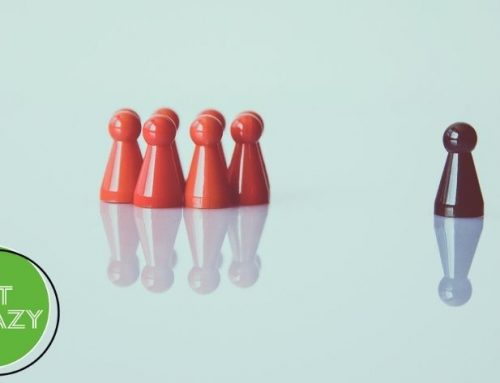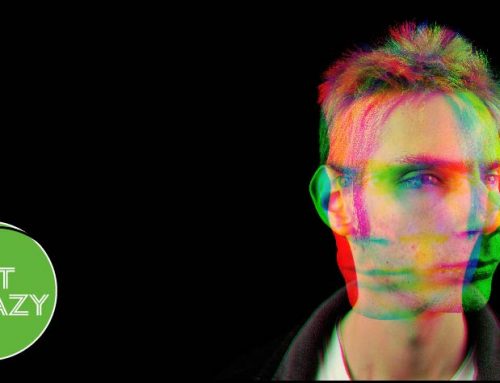The compulsions associated with hypersexuality can be as damaging as addiction. So, what exactly is it?
I’ve long said that society discusses human sexuality less than bipolar disorder. I don’t mean pop culture sex talk, but openly and frankly discussing sex. Despite using half-naked models to advertise pretty much anything, we seem remarkably unwilling to discuss the sexual health of said models. As a society, we are uncomfortable discussing sexual matters in general, and sexual education is a hotly debated topic in every school district in America.
Since collectively we can’t decide what the healthy (or normal) sexual appetite is, it makes it difficult to determine exactly what is unhealthy (or abnormal). Determining exactly when a person’s sexual appetite becomes problematic is a matter of personal preference. However, there are behaviors, feelings, and compulsions that clearly indicate a person has crossed a line.
I’ve been hypersexual
My name is Gabe and I’ve been hypersexual. If that phrasing sounds familiar, it’s because the compulsion, the need, and the obsession feel much the same as those felt by drug addicts and alcoholics.
I am nothing if not open about living with bipolar disorder. I am not providing the results of a study on bipolar and hyper-sexuality (you can find one here, if you’d like), but explaining to you what it feels like to be hypersexual.
Hypersexuality, like all illnesses and disorders, exists on a spectrum and people experience like things in different ways. My favorite ice cream is vanilla, and my wife’s favorite ice cream is chocolate. Neither one of us is eating the “correct” flavor, but we are both eating (experiencing) ice cream.
What it feels like to be hypersexual
Back in 2001, I experienced my longest bout with hypersexuality. No matter how often I had sex, it wasn’t enough. I didn’t realize this was not a normal state. This was before I was diagnosed with bipolar disorder, so I was unaware my feelings were abnormal.
Hypersexuality is about quantity, not quality. Given the limitations of the male body, this involves a lot of time and can became physically uncomfortable, but the compulsion to continue outweighed the pain. I could not sleep, move, or focus on a task until I was finished.
The unsettling part is that there was no true satisfaction in this. I wasn’t connecting with anyone or even enjoying myself. I was unable to stop and the desire to complete the act was more important than anything – or anyone. The need for sex was so great that I sought out unhealthy and emotionally damaging physical encounters, lied to the people around me, and took unsafe and unnecessary risks. Nothing was more important than quieting the biological urge that was controlling me.
Hindsight is 20/20 and I can assure you that there was no amount of sex, no type of sex, or no specific person to satisfy my cravings. The disorder gripped me entirely and the aftermath of my decisions left me empty. Trying to satisfy the urges created by hypersexuality is like shooting rubber bands at the stars – you may feel like you are achieving something, but eventually you get frustrated, and the stars remain untouched.
What hypersexuality is not and where to find help
Hypersexuality doesn’t mean having a lot of sex. It isn’t spring break; it isn’t your honeymoon. There is a world of difference between having a lot of sex and having many partners or sexual experimentation. The primary difference is motivation.
If a person is taking risks, missing school or work, and/or shirking responsibilities because sex has become more important than personal responsibility, these are telltale signs of hypersexuality. Bottom line: if a person’s reason for having sex is because they are compelled to, then there is most likely something going on. Sex is not supposed to be a chore, but fun and intimate. It can be personal or shared and take many forms, but when it crosses the line from pleasure to compulsion, something is amiss.
Hypersexuality can also be a symptom of bipolar disorder. It is no different from mania, depression, or lack of focus. Some parts of bipolar disorder can be controlled through experience, hard work, and therapy, and other parts need medication. Report your symptoms to a health care professional, including the sexual urges described above.
People living with bipolar disorder, like myself, often talk about the stigma of living with this disease. Let’s not stigmatize the symptoms of bipolar disorder further by refusing to discuss or disclose them. There is no shame in any symptom of any disease. It is okay to discuss hypersexuality; it’s a shame not to seek help.
This article originally appeared on BPHope.com as “Hypersexuality in Bipolar Disorder.“









Thank you for this.
You are quite welcome. Thank you.